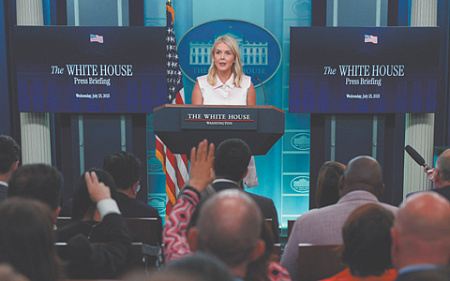
The latest round of Russia-Ukraine negotiations in Istanbul has concluded without a significant breakthrough, yet it is not being viewed in Washington as an outright failure. The talks are largely interpreted through the prism of an ultimatum from U.S. President Donald Trump, who has given Moscow until September to reach a peace agreement or face the prospect of severe secondary sanctions.
While the brief meeting on July 23 yielded no ceasefire or comprehensive peace treaty, the delegations did agree to form working groups to draft their respective visions for ending the conflict and to conduct another large-scale prisoner exchange. This limited progress has led many Western media outlets, including The New York Times, to question the fundamental purpose of the dialogue. The prevailing analysis is that neither Kyiv nor Moscow wants to be blamed for derailing the process, thereby risking the wrath of the American president.
For Ukraine, continued U.S. military assistance and the possibility of stronger sanctions against Russia hang in the balance. Any perception that Kyiv is obstructing negotiations could jeopardize this vital support. Russia, in turn, is primarily focused on avoiding new American sanctions and, if possible, slowing the delivery of Western weaponry to Ukraine. Underscoring these high stakes, a bipartisan bill in the U.S. Congress that would have imposed heavy tariffs on buyers of Russian energy has been withdrawn.
The White House has presented the bill’s withdrawal as a move to protect presidential authority. According to Press Secretary Karoline Leavitt, President Trump maintains the “exclusive right to make decisions on sanctions.” This strategically places the power to impose or lift punitive measures solely in the President’s hands, granting him maximum leverage over both Moscow and Kyiv, independent of congressional action.
In the wake of the talks, the White House has remained deliberately neutral, abstaining from any official assessment and showing neither optimism nor pessimism. Russian officials have stated there are no current plans for a phone call between President Vladimir Putin and Trump. In stark contrast, Turkey, the host nation, has offered a positive evaluation. Foreign Minister Hakan Fidan commented that the talks are moving in a “more constructive and result-oriented direction,” highlighting Ankara’s ambition to maintain its central role as a mediator and enhance its geopolitical standing.
